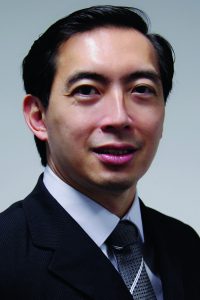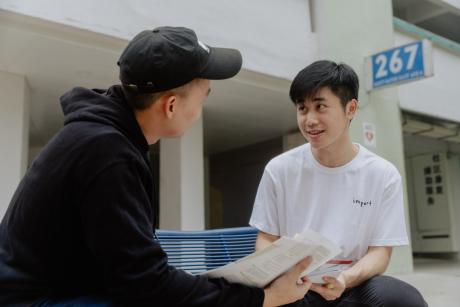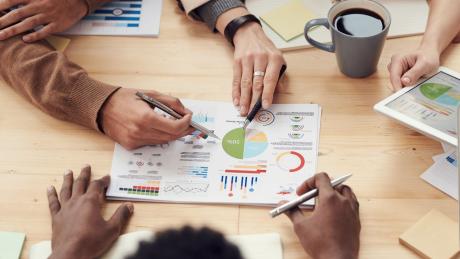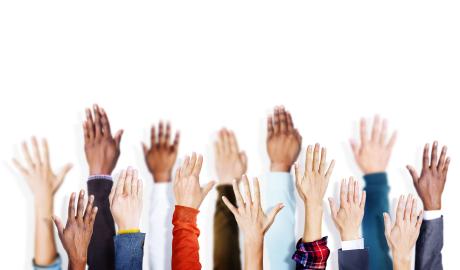By Christopher Cheok
Throughout history, young people have been the energy and driving force of change in society. Today, that is all the more true. With the prevalence of social media, youth and young adults have the unique ability to influence others, and to a greater extent than parents or schools can. Since they are able to shape attitudes and values so greatly, it is important to empower youth with the necessary knowledge and tools to be a force for good, and to make positive contributions to society.
Young people have shown their ability to create change and broad awareness of social needs through their involvement in volunteer welfare organisations (VWOs) and civil society groups. In Singapore, citizens often look to their government for solutions, which it is able to provide, though only at the “macro level”, i.e. issues that concern a large segment of society. However, there are many other “micro-level” problems affecting smaller groups that can be better addressed by self-organised interest groups. Examples of these include causes for animals, issues that concern a neighbourhood rather than a country, and support groups for special populations—for example, loved ones of persons who have committed suicide.
These interest groups, which can be composed of young adults and youth, can generate awareness among their peers and family about various issues, including the need for recycling, renewable energy, or the respectful treatment of domestic workers, to name only a few. Many causes benefit from the amplifying voices of youth and the new forms of information exchange of which they are masters.
In Singapore, citizens often look to their government for solutions, which it is able to provide, though only at the “macro level”. However, there are many other “micro-level” problems affecting smaller groups that can be better addressed by self-organised interest groups.
Millennials, those born between 1980 and 2000, seek a broader definition of success, and nowhere is this more apparent than in the workplace.1 Besides job security and career progression, research shows that millennial workers prefer to work for organisations that radically promote personal growth, support social causes, and blur the boundaries between work and play.2 For these youth seek meaning and purpose through selfgrowth and new experiences, the daily routine of an office job alone will not sustain their interests.3 As such, many companies that are unable to provide millennial workers with a clear career development plan may find that they have trouble retaining them.
On the other hand, corporations that actively involve their millennial workers in their corporate social responsibility efforts are able to harness the energy of these youth through a shared sense of purpose and mission. Further, team-bonding activities like social events, group sports or hobby groups allow millennial staff to treat the office—that place where many of us spend over a third of our lives4—as a place for both work and socialising.
Health—both physical and psychological—is another area in need of contributions from young people. As a developed nation with high life expectancy, the diseases affecting Singapore’s population are lifestyle-related and chronic in nature, such as diabetes mellitus, obesity, hypertension, substance abuse and depression. Equipped with the right knowledge on health and the benefits of exercise, youth can influence their peers to lead healthier lifestyles. They can also play an empathetic role by accompanying ageing parents on medical appointments. And as for young people whose loved ones suffer from, or who are themselves afflicted by, psychological disorders, they stand to benefit from the emotional support of peers who are well-informed on mental illness. Young people should be empowered with the right knowledge to become positive agents of health and well-being in their communities.
In my work, I have had the privilege of meeting and working with many youth with the desire to effect positive change. Spanning diverse backgrounds, they include span the individuals from Make The Change,5 to a group of young adults developing a smartphone application in aid of those with mental illness, to students who help their troubled friends via their schools’ peer support programme. These are two sides of the same coin: different initiatives that showcase youth using the tools at their disposal to promote health for the people around them.
There are several challenges to starting and sustaining an initiative directed at achieving a social impact. For one, there is the major risk of obtaining low-quality and unreliable information online. The Internet is a ready source of information, but there is a need to check their origins and interpret them in relevant contexts. Young people need to have a strong educational base, use context cues, and be discerning of online news stories put out by agencies with certain economic, commercial or political agendas.
Young people should be empowered with the right knowledge to become positive agents of health and well-being in their communities.
Self-organised groups may also find it hard to sustain themselves in the long run, especially with leadership change or stagnant membership, and limited financing. While youth can actively use the Internet to engage volunteer manpower and resources, these can dwindle over time, and a self-organised group may find it challenging to scale up beyond a certain point. That being said, there is no better time in history for the young to come forward to be a force for social change, and work towards addressing the issues that plague society, from domestic violence, welfare of domestic helpers and treatment of foreign workers, mental health, physical health, to care for the environment and animals.
Empowered by education, an open flow of information and social media tools, today’s millennials can reach and influence others like never before.
Notes
1 PricewaterhouseCoopers, Millennials at Work: Reshaping the Workplace (New York: PWC, 2011), at https://www.pwc.com/m1/en/services/consulting/documents/millennials-at-work.pdf
2 Ibid.
3 Ibid.
4 “What Percentage of Our Lives Are Spent Working?”, Reference.com, at https://www.reference.com/math/percentagelives-spent-working-599e3f7fb2c88fca
5Make the Change is an organisation that assists NGOs, charities and social enterprises to achieve their desired media exposure at lower costs through the help of volunteer staff from the creative industry.
 |
Christopher Cheok is currently the Vice Chairman of the Medical Board (National Addictions Management Service), at the Institute of Mental Health. He is a Senior Consultant psychiatrist and a visiting consultant to the Singapore Armed Forces and Khoo Teck Puat Hospital. He is also a member of the medical board of the Civil Aviation Authority of Singapore. During his career with the Singapore Armed Forces, Cheok has been the Commanding Officer of Medical Classification Centre, the Deputy Commander of the Military Medicine Institute and the Head of the Psychological Care Centre. He served in peacekeeping missions in East Timor and in the humanitarian relief mission during the Asian Tsunami. |








Comments